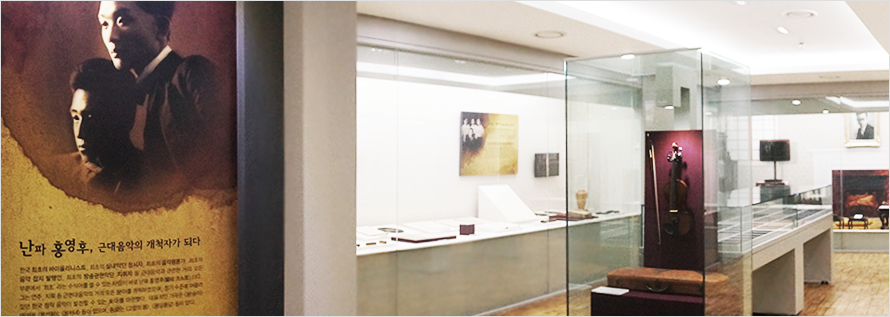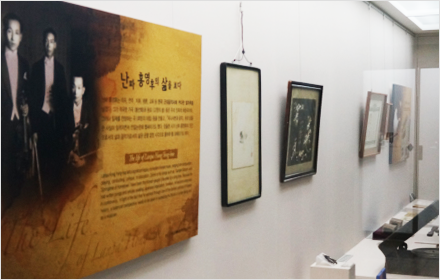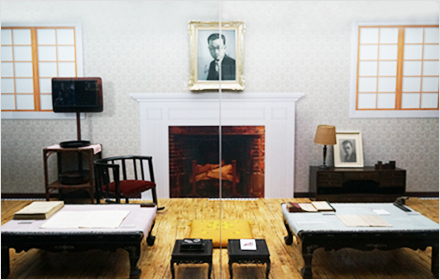전시실 안내
근대 음악의 개척자가 되다

한국 최초의 근대식 전문음악교육기관인 조선정악전습소 서양악부에 1913년 입학하여 서양음악 교사 김인식으로부터 바이올린을 배웠고, 1915년 수료 후 전습소의 교사가 되었다. 1918년에는 동경음악학교에 입학하여 2년간 수학 후 귀국했다. 1922년 음악 교육과 보급을 위해 ‘연악회(硏樂會)'를 창설하였고, 1924년 첫 번째 바이올린 독주회를 개최하였다. 1926년 동경고등음악학원에 입학하였고, 1928년 동경신교향악단 제1바이올린 연주자로 활동하였다. 1931년 미국 셔우드음악학교에 입학하여 바이올린을 전공하면서 작곡이론을 연구하였다.
(참조: 「새로 쓴 난파 홍영후 연보」, 2006)
바이올린의 선구자가 되다

1925년 한국 최초의 음악 잡지인 「음악계」를 창간하여 근대 음악 보급 및 연구에 기여했다. 1926년 「세계명작가곡선집」, 1929년부터 1933년에 걸쳐 [선동요백곡집] 상・하편, 1933년 「조선가요작곡집」 등을 간행하였다. 그리고 바이올린 독주곡 <애수의 조선>, <로만스>, <동양풍의 무곡(舞曲)>, <하야(夏夜)의 성군(星群)> 등 많은 작품을 남겼다. 또한 신민요 <녹슨가락지>, <압록강>, <청공구만리>등을 발표했다. (참조: 「새로 쓴 난파 홍영후 연보」, 2006)
난파 홍영후의 삶을 보다


작곡, 연주, 지휘, 평론, 교육 등 한국 근대음악사에 커다란 발자취를 남겼다. 그가 작곡한 가곡 <봉선화>와 동요 <고향의 봄> 등은 우리 민족의 애창곡이다. 그러나 일제를 찬양하는 곡 <희망의 아침> 등을 만들고, [지나사변과 음악] 등의 글을 쓴 사실이 알려지면서 친일논란에 휩싸이기도 했다. 암울한 시기 난파 홍영후의 인간으로서의 삶과 음악가로서의 삶은 균형 잡힌 시각으로 풀어야할 과제이기도 하다.
- 대학 홈페이지 add
- 대학원 홈페이지 add
- 부속/부설기관 홈페이지 add
본 웹사이트에 게시된 이메일 주소가 전자우편 수집 프로그램이나 그밖의 기술적 장치를 이용하여 무단으로 수집되는 것을 거부하며, 이를 위반시 정보통신망법에 의해 형사처벌됨을 유념하시기 바랍니다.